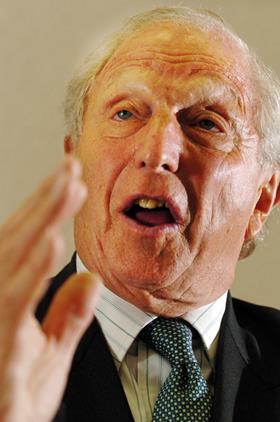End court management of litigation
I have read with interest the observations of Dr Victoria McCloud (Gazette, 24 May), bemoaning the fact that courts can no longer provide the necessary resources for the management of litigation. Having been a litigator for over 60 years, I can confirm that the procedures we had before the Woolf reforms were eminently better. Unfortunately, judges complained that cases were brought to trial so many years after the disputed events that witnesses could not remember the facts.
I had the privilege to serve on the information technology and courts committee when consideration of computerising the courts was the subject of concern. From my first meeting, civil service representatives were complaining that solicitors were solely at fault for causing delays in litigation. The evidence that was brought before the committee in support of that contention was far from convincing. But they were looking to lay the blame somewhere.
The London Solicitors Litigation Association committee suggested that I investigate the problem. I did so with a barrister, Nick Bard of Devereux Chambers. We produced a report that formed the basis of a request by the association for a judicial review. Eventually, we succeeded in persuading the then government department to act. It appointed Lord Woolf (pictured) and senior master Turner to investigate and advise.

The advice as to the new and novel procedures set out in our report was supported by the Law Society and in due course adopted by Lord Woolf.
I spent significant time with Lord Woolf, but sadly I could not persuade him away from his determination that the only way to resolve the problem of delay was for all litigation to be the subject of court management. I pointed out to him that this would substantially increase the cost of litigation, taking the service out of the reach of most of the population. But my concerns were dismissed.
In their endeavour to control the situation, the courts brought in harsh penalties for any failure to comply with time limits they set, which caused substantial and time-consuming peripheral litigation. Despite every effort of judges to overcome the problems, they have failed, and we now face suggestions that litigants should be forced to seek agreements as to procedural matters outside the court system. The courts have also brought in serious penalties for litigants who do not want to spend their time and money on mediation.
All this has led to public dissatisfaction with the court service, which at one point was the envy of the world. For those who have matters that they want put before the courts but cannot afford the advice of lawyers, there is now the opportunity of becoming a litigant in person. That is the bane of all judges.
But this is one of the consequences of changing longstanding and effective procedures without proper consideration. Perhaps the most telling result of this unfortunate experiment is that cases are still coming on for trial many years after the relevant events, with no real improvement – the driving force that has led to this disastrous situation.
You can talk about tinkering with a procedure here and there, but there is only one way to resolve this problem – and that is to end court management of litigation. Solicitors are far more adept at controlling the conduct of disputes than either judges or the civil service.
As solicitors, we know what is required to address disputes which we can achieve successfully if we have the appropriate support of barristers and judges.
Colin Jaque
London
Wild west tribunal
The Employment Tribunal (ET) system is no longer fit for purpose. Those who deal with the ET daily know it is in need of an overhaul.
Reminiscent of lockdown, some claims take more than six months to filter through before being served on respondents, with no explanation. Phones go unanswered, as do emails. In one London ET, the claimant repeatedly and persistently failed to comply with ET deadlines (the claimant failed to comply with any ET deadline over the two-year history of the claims). Then, despite the ET making four strike-out warnings, three of which were specifically related to non-compliance with directions/failure to pursue claims, and despite two unless orders, in response to two applications for strike-out being made by the respondent, a decision was taken by the ET that the full merits hearing (FMH) should proceed.
This makes a mockery of the strike-out warnings and unless orders. The respondent was then put to the cost of preparing for, and attending, an FMH. This was despite the claimant’s persistent non-compliance, which meant that a fair trial within the listed trial period was not possible.
Despite all of the above, the FMH proceeded and the ET finally decided to strike out the claims in their entirety. This was all at significant cost to the respondent.
When I began my legal career, it was possible to get claims struck out for non-compliance at a preliminary hearing. ET directions were respected by both parties. However, it is now impossible. Specifically, a judge will not strike out a claim if it includes discrimination without proceeding to an FMH. As a result, orders made by the ET no longer carry weight.
Consistently, we are seeing litigants in person submitting claims to the ET, and at a later date making applications to amend. Despite such applications being out of time, it is pretty much a given that the ET will allow them.
For me, the change I have seen in the ET over the last 14 years is so stark, I would describe the ET as the wild west – lawless and out of control.
Katie Maguire
Partner, Devonshires, London































2 Readers' comments